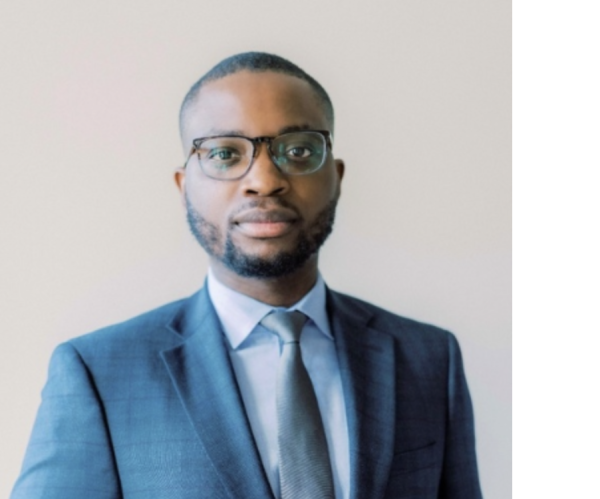Colin Powell School
A First-Generation American Passionate About Public Service: The Story of Olakunle Atanda (‘14)
Olakunle is a first-generation American of Nigerian descent. He was born in Brooklyn but spent most of his formative years in Lagos, Africa’s most populous city. Growing up in a developing economy, he witnessed searing poverty, inequality, and political instability. This experience not only revealed to him the indispensable role of public policy in creating measures of support and opportunity for people but also seeded his passion for public service. After graduating high school in Nigeria, Olakunle returned to New York determined to equip herself with the skills and knowledge needed to make a meaningful impact. He sought an education that would challenge him and allow him to peer deeper into issues of institutional development and good governance from both analytical and comparative perspectives.
What brought you to CCNY and to the Colin Powell School?
I was drawn to CCNY for several reasons including affordability and the reputation of its political science program. What won me over, however, was visiting Shepard Hall and learning about the history of the college which was originally founded as the Free Academy. Perched in the heart of Harlem with the rich vibrance and diversity of the community and its neo-Gothic campus, I was immediately enchanted and am forever grateful I made the decision to enroll. City College is a microcosm not just of New York City and the country, but indeed of the world. The different backgrounds and perspectives I encountered across campus not only fostered cross-cultural understanding but also strengthened the intellectual environment in our unique but shared pursuits to understand and change the world.
What is your passion or purpose behind pursuing what you did at City College?
Conditions in communities where I have lived and studied instilled in me a passion for public service. My courses in political science and public policy at City College provided me with the rigorous theoretical frameworks to understand how political phenomena and events within society are shaped. It provided a solid understanding of the intersection of American history, international security, political philosophy, foreign policy, and economics. It also emphasized experiential learning through internships which helped to couple theory with practice and provided real-life experience in policy making.
Briefly, how has your career unfolded? How did City College and/or the Colin Powell School help you to get where you are in your career?
From graduate school at Columbia University to work at the UN and World Bank, City College and the Powell School have played a critical role in my achievements to date. Taking part in Model UN helped groom me in the fundamentals of diplomacy which I currently practice in my job today. Having access to the Diplomat-in-Residence on campus connected me with opportunities I might not have otherwise had, including a U.S. Department of State fellowship. The Semester in D.C. program supported my White House internship and helped me expand my professional network — and, importantly, offered me a first glimpse of living in D.C., which is where I have now resided for the last 5 years. Above all, I appreciate that the Powell School reinforced service as a core tenet of its educational curriculum. This aspect has remained a central theme in my life today.
Do you have any significant memories or accomplishments from your career or time at City College / Colin Powell School that you would like to share?
I have several cherished memories from my time at City College. I’m eternally humbled to have graduated as the inaugural valedictorian of the Powell School and grateful to have studied abroad in Brazil. But the moments I hold most dear are perhaps the simple ones: hanging out with friends in the International Studies (I.S.) lounge, hunting down free food at club fairs, debating NYC politics with Professor Krinsky, protesting climate change and tuition hikes in front of NAC, and lazing on the grass between classes.
Do you have any advice you could give to current or future students?
Learning outside the classroom is just as important as time spent inside the classroom. In addition to studying hard, I strongly recommend immersing yourself in community activities, getting involved with campus organizations, and genuinely connecting with your peers. Finally, I would also recommend learning a new language and studying abroad if possible!
What are your future aspirations for your career?
Ultimately, I hope to help inform, develop, and advance policy solutions that address challenges in a sustainable way and expand opportunities for all, especially the most vulnerable groups.
